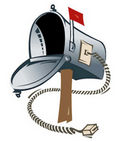1910
Events
- In 1910, the responsibility for radio station lists was transferred from the Navy's Equipment Bureau to the Navy's Steam Engineering Burea. Late in 1912 the licensing of radio stations was under the Commerce Department, and all of the lists of licensed radio stations in the United States were under the responsibility of the Bureau of Navigation.
- Wireless Ship Act of 1910.The Wireless Ship Act was passed by the United States Congress in 1910, requiring all ships of the United States traveling over two-hundred miles off the coast and carrying over 60 passengers to be equipped with wireless radio equipment with a range of one-hundred miles. The legislation was prompted by a shipping accident in 1909, where a wireless operator was seen as having contributed to saving the lives of 1,200 people.
The Act did not alleviate the problem, existing at the time, of interference between multiple users of the radio spectrum. In fact, by mandating increased use by shipping, it may well have exacerbated the problem. There was already an ongoing conflict between amateur radio operators and the U.S. Navy and private companies. Amateur radio enthusiasts regarded the new medium as a wide-open new frontier, free from government regulation and corporate influence. They fought against government and corporate encroachment in many ways, including by sending fake distress calls and obscene messages to naval radio stations, and forged naval commands sending navy boats on spurious missions. It was this, in addition to the public outcry after the sinking of the RMS Titanic and an international convention agreed in London, that caused Congress to replace the Wireless Ship Act with the Radio Act of 1912.
- First radio transmission from an airplane.
On This Day
-
January 13-The first radio broadcast-Over two nights, the American pioneer Lee de Forest arranged what is claimed by some as the world's first radio broadcast to the public, a performance of Puccini's Tosca directly from the Metropolitan Opera to several listeners in New York. He used two microphones and a 500-watt transmitter.
Few possessed the wireless receivers to hear the transmission. Fewer still could make out what was going on, because the sound quality was so poor. Nevertheless, it was an early indication of radio's potential as an entertainment medium.
- June 24-U. S. approves an act requiring radio equipment on certain passenger-carrying vessels
1910 Radio
- Listen to the Top 40 songs of 1910.
Note: you will be redirected to a different web site, which will open in a new window.



